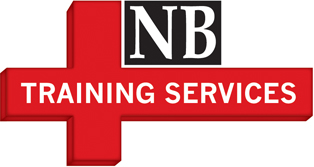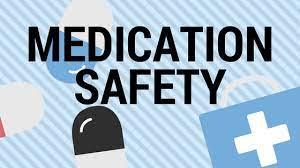Medication Safety is of extreme importance in social care and community settings, be it administering medication to young or to old. All social staff and healthcare assistants that are administering or assisting clients with medication should attend a Safe Administration of Medication Course tailored to their workplace. This can not be over emphasised as the consequences of giving the wrong medication or dose can have devastating effects on the client’s life. For example, if an adult dose of some medications are given to a child it can cause serious long term kidney and liver damage.
Errors can occur at any stage of the medicine cycle “including assessing, supplying, prescribing, dispensing, administering, reviewing, and assisting people with their medications” (HIQA 2015). “Medication Incidents can also include ‘near misses’ and incidents that do not result in harm” (HIQA 2015).
When we think of errors in a social care or community setting, we automatically look to ourselves and our practice, but it can occur in the prescribing and dispensing stage also.
All social care staff and healthcare assistants should inform themselves about the medications they are assisting with or administrating to a client. Of particular importance, would be why medication is prescribed, dosage and any possible side effects. Under no circumstances should a staff member administer or assist in giving medication that is not known to them. Using the 10 rights of Medication Management correctly will help to prevent errors. Remember all medication errors are preventable and we should learn from errors thus preventing further events
Common errors that occur in social and community care:
Missed doses: Staff forget to give the medication. It doesn’t sound like a major issue. However, missed doses can have serious consequences for your client. For example, missing or forgetting to give antibiotics may end up with your client in hospital on intravenous antibiotics.
Missed signatures: I have heard staff say, “It is only a missed signature, its no big deal, I can sign it now” However again this may have devastating consequences. Many major errors derive from a missed signature. Take for example a medication that should only be given once a day (once in a 24hr period) has been given but the staff member forgets to sign for it. In a later shift someone notices the missed signature and gives the medication again. With some medications the client may end up hospitalised as a result of this overdose. NB: Always check with the client and the staff member if the medication has been given if you notice a missed signature. Don’t just assume that it hasn’t been given.
Incorrect dose: Either too large a dose or too small a dose can affect the wellbeing of your client and can have major consequences.
Crushing Medication: Staff often crush medication to make it easier for a client to swallow without realising the consequences of their action. Changing the form of a medicine can affect - If it will work, how it is absorbed e.g. more quickly and the taste. This may also affect the license of a medicine and therefore has legal implications (see Section 10.1 Medicines Management Guidance – HIQA 2015) The medication must be administered in the form prescribed by the GP only. Don’t rush to crush!!
Reporting: As with all errors it is important that all staff have a duty and responsibility to report any medication incidents and consult with the relevant Health Care Professional so as to prevent harm to the client.
Medication can save lives Improve our quality of life or harm you. Handle with Care !!!!
If you wish to book a course for your social care staff or healthcare assistants, we will link in with you in advance to tailor the course to your service. We will also cover your safe administration of medication policy with your staff. Our Medication Management courses are delivered by Reg General Nurses with an in-depth knowledge of medication management in social care and health care community settings.
Noeleen Boyle, RGN, RM.
Director NB Training Services

